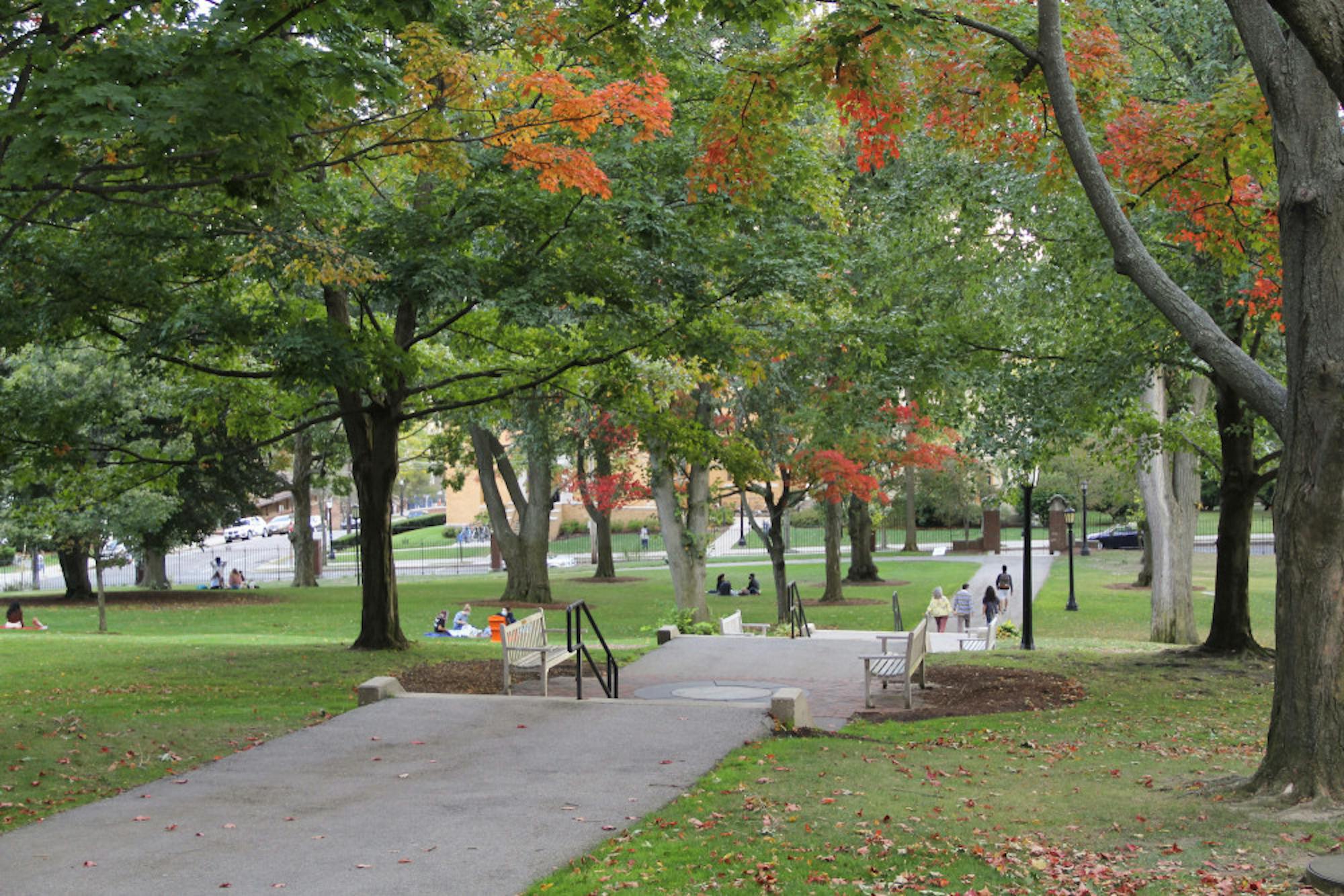The Talloires Network of Engaged Universities, previously formally known as the Talloires Network, celebrated its 15th anniversary on Sept. 17. With an updated name, logo, mission and values, the Tufts-led global coalition of universities renewed its commitment to incorporating civic engagement in higher education and building a community of practice.
Lorlene Hoyt, executive director of the Talloires Network, remarked that the updated mission is a more accurate representation of what the Talloires Network has already embraced.
“The messaging framework we’ve issued ... is really a reflection of where we are,” Hoyt said. “Given all of those changes that are happening around the world, with [COVID-19] but also around issues of social justice, etc., we needed to revisit our language and our messaging.”
The fight for social justice, especially around issues of race, is now explicit in the Talloires Network's messaging framework.
"We have now publicly stated that The Network takes the position that racial justice is not a political issue but a human rights issue," Hoyt wrote in an email to the Daily. "Movements for justice and other forms of activism are worthy of attention from a scholarly perspective."
According to Hoyt, theupdated mission statement defines university civic engagement, a concept that includes actions such as community-based research, social entrepreneurship and political activism, among others.
She also recognized that the extended name, “Talloires Network of Engaged Universities,” clarifies the intent of the Network as an anchor of civic engagement, while keeping the “Talloires Network” name its members already felt attached to.
She added that the new logo was the result of a design competition within the Talloires Network, and the winning logo was created by a member from Mount Kenya University.
The Talloires Network was first created by then-Tufts University President Lawrence Bacow, who held a conference in 2005 with 29 university presidents, vice chancellors and directors from 23 different countries, and served as chair of the Talloires Network's Steering Committee.
Hoyt explained that the institutions discussed the roles of civic life and social responsibility in higher education during the conference. Members also signed theTalloires Declaration and committed to enhancing the role of civic life in their institutions, as well as establishing a global network as a shared space for the exchange of ideas.
The Talloires Network of Engaged Universities has now grown into a coalition that includes406 university members from 78 countries. It is chaired by University President Anthony Monaco and is located in the Jonathan M. Tisch College of Civic Life.
Hoyt explained that Mark Gearan, the former president of Hobart and William Smith Colleges who replaced Bacow as the chair of the Steering Committee, helped define the goals and mission of the Talloires Network early on.
“Mark Gearan at the 2011 Madrid [Talloires Network Leaders Conference] gave a speech about how important it is to work with the Global South and to learn from the Global South, so that really became a top priority for the network,” Hoyt said. “[Now] a lot of our programs are focused on the Global South."
Mapendo Mindje, a former student representative for the Steering Committee, underlined some of the reasons why people want to join the global community.
“I think more members are being engaged to the Talloires Network because as a coalition of more universities across the globe, there is a lot of success stories to share and learn from for respective improvement,” Mindje wrote in an email to the Daily.
Mindje added that working with peers and collaborating with others are critical skills to becoming civically engaged.
In an effort to connect the global community in person, the Talloires Network hosts the Talloires Network Leaders Conference (TNLC) every three years, according to Hoyt.
“[The TNLC] is an opportunity for people who are doing [civic engagement] work in the Global South and the Global North to come together face to face, to share ideas, knowledge and strategies and, importantly, to make these human connections,” Hoyt said.
Donald Bodzo and Phil Mlanda, co-founders ofpaNhari, an organization that works closely with the University of Zimbabwe, a member institution of the Talloires Network, echoed Hoyt’s statement.
“All these engagements [at the TNLC], we always find them very rich and very engaging,” Bodzo said. “You get to learn, you get to also hear what other universities are doing.”
Bodzo and Mlanda's organization was one of thewinners of theUniversity Award for Innovative Civic Engagement, which provides financial support to projects that address public health problems in the Global South related to COVID-19. This grant is one of the many initiatives under the Talloires Network’sAction Research program, according to Hoyt.
“We structure those programs in a way that the participants are tracking the decisions they’re making, they’re reflecting on their [practices], and then we document those case studies,” Hoyt said.
Another Action Research project under the Talloires Network is called Communities Of Virtual Alliance and Inter-Dependence (COV-AID). Instead of providing funding to institutions, COV-AID directly supports undergraduate students around the world who initiate projects that address the impact of the pandemic.
Catherine Mumo, one of the winners of the COV-AID Student Engagement Award, foundedNawiri Sist3rs, an initiative that educates young women about menstrual health and hygiene. She has been able to continue the organization's critical work during the pandemic due to funding provided by the Talloires Network.
In addition to the Student Engagement Award, COV-AID also consists of a six-week webinar series where student and university leaders within the Talloires Network discuss ways to mitigate the impact of COVID-19 in their respective communities.
Mumo expressed gratitude for the connections and community she has built through the Talloires Network.
“Interacting with the other college Student Engagement Award winners has also been quite inspiring ... getting to hear the work they're doing ... sharing stories, making new friendships [and] interacting with the Talloires Network’s team members,” Mumo said.






